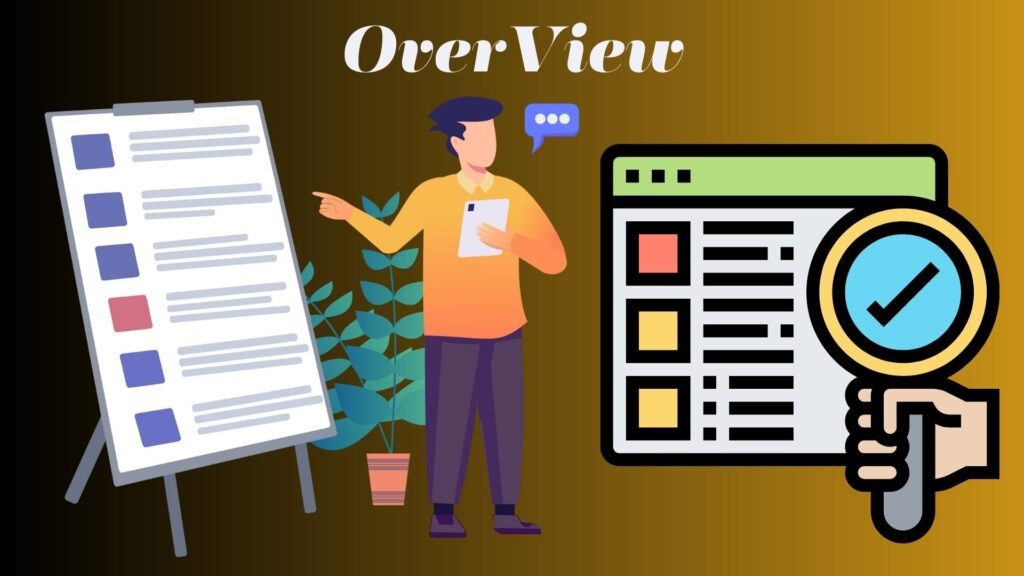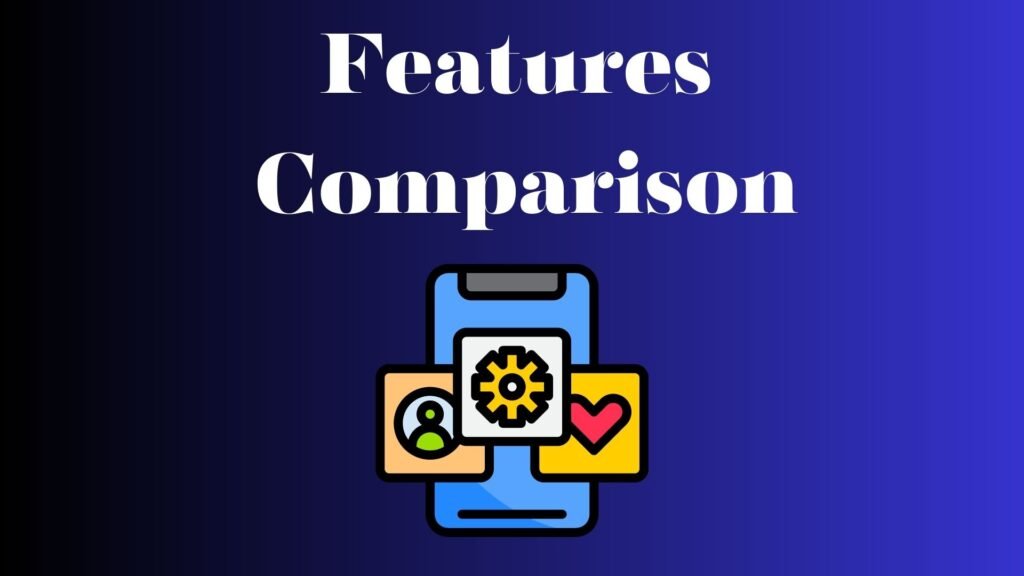In an era where e-learning platforms are transforming education, Coursera vs Pluralsight stands as a pivotal debate. These platforms, transcending geographical boundaries, have made knowledge more accessible and tailored.
Amidst the digital education wave, both Coursera and Pluralsight shine with their unique offerings, catering to diverse learning needs.
The digital realm is teeming with online learning platforms, but when it comes to quality and diversity, two names often dominate the conversation: Coursera and Pluralsight. In the face-off of Coursera vs Pluralsight, which platform offers the best learning experience? Let’s dive deep.
Overview of Coursera vs Pluralsight

In an era where digital learning is not just an option but a necessity, platforms like Coursera and Pluralsight have emerged as guiding lights.
While Coursera provides a holistic approach, blending academic knowledge with practical insights, Pluralsight delves deep into the tech realm, ensuring its learners are always ahead of the curve.
It’s not just about the courses or the content; it’s about the experience, the community, and the opportunities these platforms unlock.
As the lines between traditional and online education blur, choosing between Coursera and Pluralsight becomes less about the platform and more about aligning with a vision of continuous, lifelong learning.
Overview of Coursera
Coursera, birthed from the halls of Stanford, has become a global phenomenon. Collaborating with elite universities and organizations, it offers a spectrum of courses, from arts to machine learning.
Coursera vs Pluralsight in Diversity: Coursera’s strength is its vast course catalog. Whether you’re delving into data science or humanities, Coursera promises depth and breadth.
Specializations & Learning Paths: Beyond standalone courses, Coursera offers structured learning paths. These are sequences of courses designed to offer mastery in specific domains.
User Experience: Coursera’s platform is intuitive and easy to navigate, ensuring learners can focus on their studies.
Overview of Pluralsight
Pluralsight, with its tech-centric ethos, caters predominantly to IT aficionados. It offers a deep dive into the latest tech paradigms.
Coursera vs Pluralsight in Tech Focus: Pluralsight’s courses are meticulously crafted by industry stalwarts. From software development to IT ops, it’s a tech sanctuary. The courses on Pluralsight are contemporary, ensuring learners are industry-ready.
Learning Paths: Pluralsight offers structured learning paths, guiding learners through a series of interconnected courses for a holistic understanding.
Skill Assessments: Pluralsight’s Skill IQ is a standout, helping learners gauge their tech proficiency.
Features of Coursera vs Pluralsight

Coursera stands out with its diverse course offerings, spanning from machine learning to humanities, thanks to collaborations with top universities and industry leaders.
Beyond individual courses, Coursera introduces structured learning through specializations and learning paths, enriched with interactive elements like quizzes and peer-reviewed assignments.
In the Coursera vs Pluralsight debate, it’s evident that while Coursera offers a broad spectrum, Pluralsight, tailored for the tech-savvy, boasts a curated library that’s always updated with the latest in technology.
Unique features like Skill IQ assessments allow learners to gauge their proficiency while learning paths guide them through a series of interconnected tech courses.
Coursera:
Coursera’s features are tailored to offer a comprehensive learning experience.
- Diverse Course Offerings: Coursera’s courses span across disciplines, from arts and humanities to data science and business, ensuring there’s something for everyone.
- Specializations & Learning Paths: Beyond individual courses, Coursera offers sequences of courses that culminate in specializations, allowing learners to gain in-depth knowledge in specific fields.
- Interactive Learning: Coursera’s platform is designed for engagement. With quizzes, peer-reviewed assignments, and community forums, learners are encouraged to actively participate, enhancing retention and understanding.
- Certifications & Degrees: Many courses on Coursera come with certifications from renowned institutions. Additionally, Coursera also offers online degrees in collaboration with top universities.
- Flexible Learning Schedule: Coursera’s platform allows learners to set their own pace, making it easier for working professionals and students to manage their time.
Pluralsight:
Pluralsight’s features, being technology-based, are tailored for the tech community.
- Tech-Centric Courses: Pluralsight’s library, a repository of technology and IT courses, is updated regularly to reflect industry trends, ensuring learners are always equipped with current knowledge.
- Learning Paths: Pluralsight’s curated paths guide learners through a series of related courses, ensuring a holistic understanding of specific tech domains.
- Skill Assessments: With tools like Skill IQ, Pluralsight allows learners to assess their proficiency levels, ensuring content consumption aligns with their skill set.
- Hands-on Learning: Pluralsight offers interactive labs and projects, allowing learners to apply their knowledge in real-world scenarios.
- Expert-authored Content: Courses on Pluralsight are crafted by industry experts, ensuring content is both relevant and of high quality.
Both platforms, in their own right, offer features that promise an enriching learning experience.
Pricing of Coursera vs Pluralsight

When considering diving into the world of online learning, pricing inevitably becomes a pivotal factor. In the Coursera vs Pluralsight showdown, as we juxtapose two of the industry’s giants, their pricing strategies emerge as distinct reflections of their offerings.
Coursera, with its vast academic collaborations, offers a flexible pricing model, allowing learners to either purchase individual courses or opt for monthly subscriptions for deeper dives. Pluralsight, with its tech-centric focus, champions a subscription-based approach, ensuring continuous, unrestricted access to its rich content library.
Ultimately, the choice hinges on one’s learning objectives and budget, but rest assured, both platforms endeavor to offer unparalleled value for every penny spent.
Coursera:
Coursera’s pricing is as diverse as its courses.
- Individual Courses: These typically range from $29 to $99.
- Specializations: These are subscription-based, usually around $39 to $79 per month.
- Coursera Plus: $59 per month or $399 per year
Coursera’s pricing model is designed to offer flexibility. With options to audit courses for free and various subscription plans, learners can choose what suits them best. Whether you’re looking for a single course or a specialization, Coursera’s pricing ensures that quality education is accessible.
Pluralsight:
Pluralsight operates on a subscription model.
- Monthly: Priced at $29.
- Annual: Priced at $299.
- Standard Plan: $29 per month, or $299 per year.
- Premium Plan: $45 per month, or $449 per year.
- Team Plans: Starting at $579 per user per year.
Pluralsight’s subscription-based pricing offers lifetime access to their entire course library for the duration of the subscription. This model encourages continuous learning, allowing learners to explore various courses without additional costs.
Whether you’re looking to learn a single skill or multiple technologies, Pluralsight’s pricing offers an all-access pass to tech mastery.
Pros and Cons of Coursera vs Pluralsight

Every platform has its strengths and areas of improvement. Coursera shines with its diverse course offerings and collaborations with top-tier universities, but some might find certain courses on the pricier side.
Pluralsight, with its tech-focused curriculum, offers in-depth courses and regular updates, though its tech-centricity might not cater to everyone’s tastes.
Weighing these pros and cons is essential to find the platform that aligns best with one’s learning goals.
Coursera:
Pros:
- Diverse course offerings.
- Recognized certifications.
- Flexibility in learning.
Cons:
- Some courses can be pricey.
- Peer grading might not appeal to everyone.
Pluralsight:
Pros:
- In-depth tech courses.
- Regular content updates.
- Skill assessments.
Cons:
- Limited non-tech courses.
- The subscription model might not suit everyone.
Head-to-Head Comparison

When Coursera and Pluralsight go head-to-head, the distinctions become clear yet complementary. Coursera, with its expansive course catalog, offers a university-like experience, drawing from a vast pool of academic and industry partnerships. It’s where theory meets practice.
Pluralsight, laser-focused on the tech domain, is the go-to for IT enthusiasts and professionals. Its courses, curated by industry stalwarts, ensure that learners are always equipped with the latest tech know-how.
While Coursera casts a wide net, appealing to a diverse audience, Pluralsight zeroes in on the tech-savvy, ensuring depth and expertise.
Coursera vs Pluralsight: Quick List
- Coursera:
- Broad course spectrum: From humanities to tech.
- Academic and industry collaborations.
- Blends theory with practical application.
- Suitable for academic learners and professionals.
- Pluralsight:
- Tech-centric course library.
- Curated by industry experts.
- In-depth courses with regular updates.
- Tailored for IT professionals and tech enthusiasts.
Customer Support in Coursera vs Pluralsight

Navigating the vast seas of online learning can sometimes require a guiding hand. Coursera’s robust support system, complete with FAQs, email assistance, and community forums, ensures learners never feel adrift.
Pluralsight, too, prioritizes user experience with a comprehensive help center and responsive email support. Both platforms underscore the importance of a seamless learning journey, with dedicated teams ready to assist at every turn.
Coursera:
Coursera offers a detailed FAQ section, email support, and community forums. Their proactive approach ensures learners spend more time learning and less time troubleshooting.
Customer support Features:
- FAQ Section: A comprehensive collection of frequently asked questions, helping users find quick solutions to common issues.
- Email Support: Direct communication channel for more complex queries, ensuring personalized assistance.
- Community Forums: A platform where learners can interact, share insights, and seek help from the broader Coursera community.
- Course Feedback: Allows learners to provide feedback on courses, ensuring continuous improvement.
- Mobile App Support: Dedicated support for their mobile application, ensuring seamless learning on the go.
Pluralsight:
Known for its robust support, Pluralsight offers a comprehensive help center, email support, and active community forums. Their dedicated team ensures learners have a smooth experience.
Customer support Features:
- Help Center: A one-stop solution hub, addressing a wide range of issues from billing to course navigation.
- Email Support: A channel for learners to raise specific concerns and get detailed assistance.
- Community Forums: A space for learners to connect, discuss courses, and seek peer assistance.
- Course Discussion Boards: Specific to each course, allowing learners to discuss content and seek clarifications directly related to their course.
- Feedback System: Enables users to provide feedback on courses, instructors, and the platform, driving continuous enhancement.
Both platforms prioritize learner support.
Alternatives to Coursera and Pluralsight

While Coursera and Pluralsight are industry frontrunners, the online learning space is teeming with alternatives. Platforms like Udemy offer a vast course library spanning various domains, while edX brings university-level courses to the table.
LinkedIn Learning, tailored for professionals, focuses on skill enhancement for career growth. Each platform, with its unique offerings, caters to different segments of the e-learning community, ensuring there’s something for everyone.
While Coursera and Pluralsight are industry leaders, other platforms also offer quality education:
- Udemy: Known for its vast course library, Udemy offers both tech and non-tech courses, ensuring diversity.
- edX: A platform that offers university-level courses, edX partners with top universities, ensuring academic rigor.
- LinkedIn Learning: Tailored for professionals, LinkedIn Learning focuses on both tech skills and soft skills, ensuring holistic professional development.
- Khan Academy: A non-profit platform offering courses for free, it’s a great resource for foundational knowledge.
- Skillshare: Focusing on creative courses, Skillshare is perfect for those looking to explore arts, design, and more.
Other Blogs:- Pronto Email: Revolutionizing Communication in a Flash
Final Thoughts on Coursera vs Pluralsight

In the Coursera vs Pluralsight debate, the winner truly depends on the learner’s objectives. Coursera offers a broader learning spectrum, catering to both academic learners and professionals.
Pluralsight, with its tech focus, is tailored for IT professionals. Both platforms promise quality and value. The key is to identify your learning goals and choose accordingly. However, it’s essential to note that the digital learning landscape is vast and ever-evolving.
While Coursera and Pluralsight stand as prominent figures, the right platform also hinges on factors like learning style, content delivery preferences, and even community engagement. It’s not just about the courses; it’s about the entire ecosystem that surrounds them, from peer interactions to expert guidance.
I hope this comprehensive guide provides clarity on Coursera vs Pluralsight and aids in your e-learning journey. Happy learning! 🌐📚
